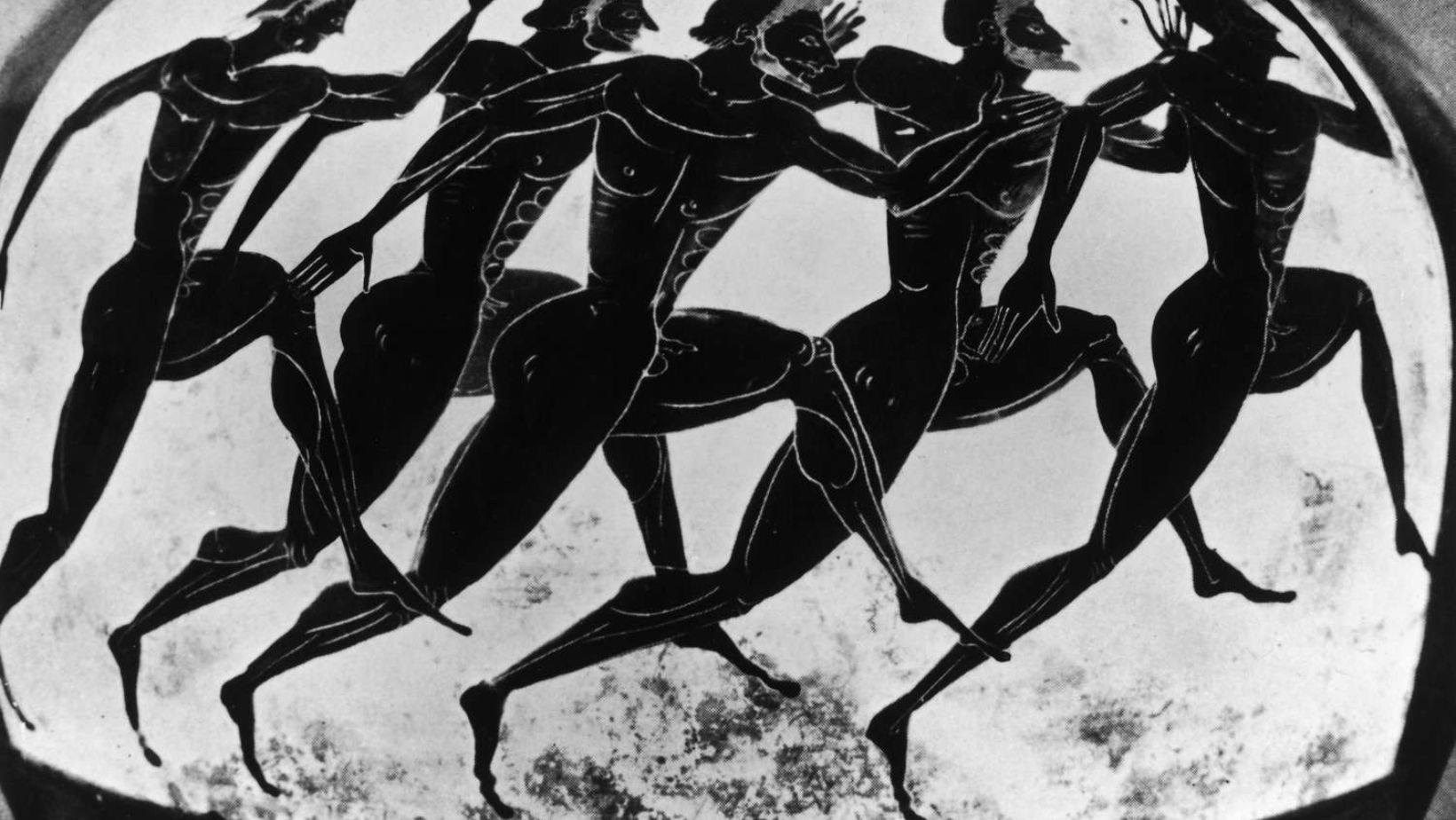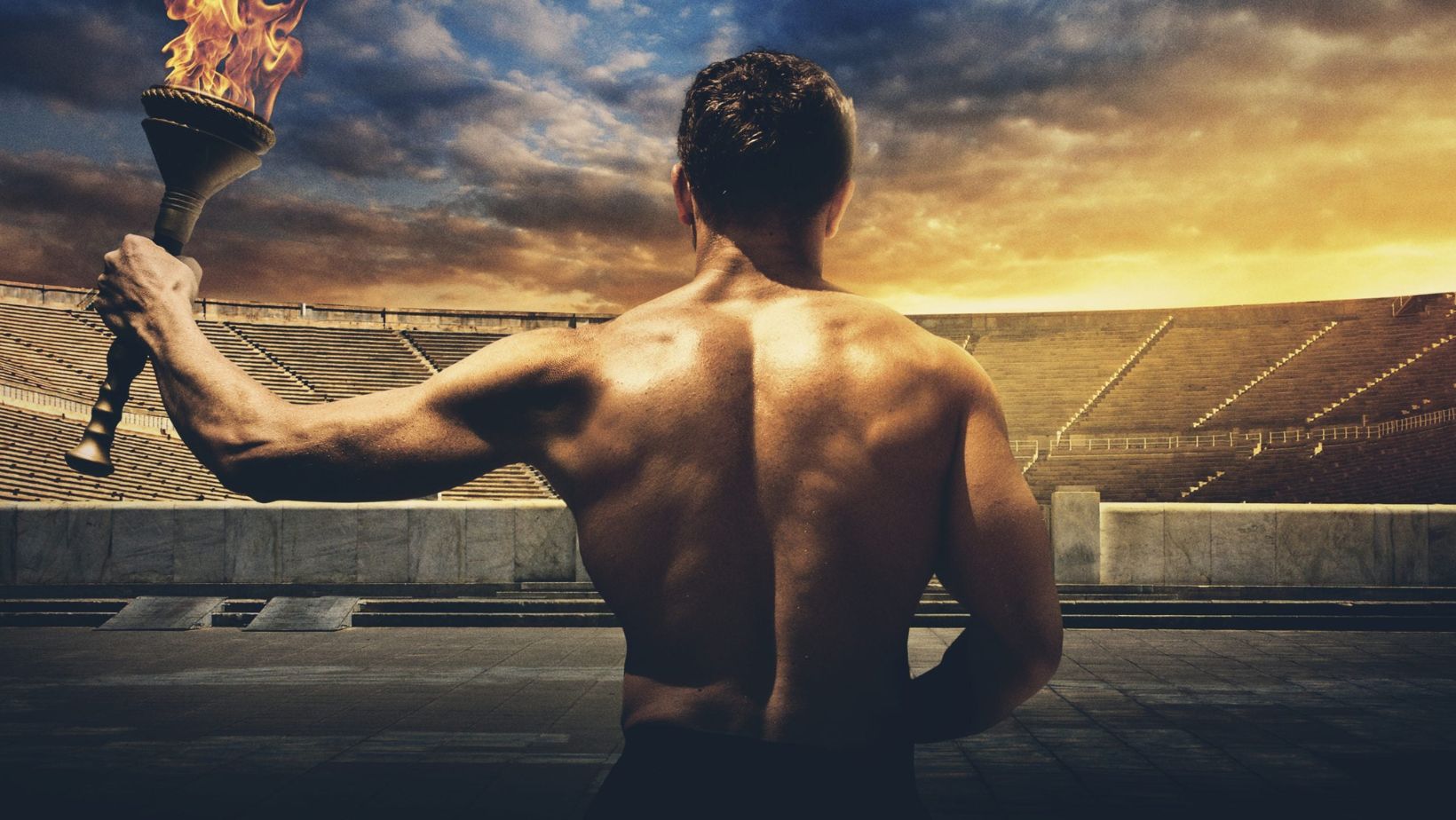Ever stopped to think how those Ancient Olympic Games Legacy still ripple through our modern world? The impact of these age-old competitions stretches far beyond just a trip down history lane; they’re the building blocks of how we view and cherish global sports events today. From chariot races to footraces, these games were not just about physical prowess but also a celebration of unity, honor, and tradition among competing city-states in ancient Greece.
The stadion foot-race marked an athlete as an overall champion, yet behind this simple race lay a complex tapestry woven with dedication, religious fervor, and political intrigue. These athletes weren’t merely running for personal glory; they competed under the watchful eyes of gods and mortals alike.
Table of Contents:
- The Origin and History of the Ancient Olympic Games
- Format and Events of the Ancient Olympic Games
- Prizes, Prestige, and Legacy of the Ancient Olympic Games
- The Sacred Site of Olympia and Its Role in the Games
- The Decline and Revival of the Olympic Games
- Conclusion
The Origin and History of the Ancient Olympic Games: Ancient Olympic Games Legacy

The ancient Olympic Games were a beloved tradition in Greece, drawing athletes and spectators from across the Mediterranean world. But have you ever wondered how it all began?
According to Greek mythology, the Olympic Games were founded by the mighty Heracles, son of Zeus himself. But the first recorded evidence of the games dates back to 776 B.C. – and oh, what a spectacle it must have been.
The origins of the Olympics are steeped in legend and myth. One tale credits Pelops, king of Pisa in the Peloponnese, with founding the games. Another claim began with Zeus, who battled his father Kronos for control of the world and celebrated his victory by establishing the festival.
Events and training
The ancient Greeks took their sports seriously. Athletes would train rigorously for months, all leading up to the main event. And what an event it was – a religious festival that honored Zeus, king of the gods.
The games featured a wide array of events:
- Running
- Wrestling
- Boxing
- Pankration (a brutal combination of wrestling and boxing)
- Chariot racing
- Horse racing
Ancient games at Athens: Ancient Olympic Games Legacy
The Olympics weren’t the only game in town. Other major athletic competitions included the Pythian, Nemean, and Isthmian games. These formed a circuit that the top athletes would compete in.
But the Olympics reigned supreme. Held every four years in Olympia, they drew competitors and spectators from across the Greek world. For the Greeks, athletics was a way to display physical and moral excellence – to embody the Olympic spirit truly.
Format and Events of the Ancient Olympic Games: Ancient Olympic Games Legacy
The ancient Olympics were a five-day festival packed with intense competition and sacred rituals. Let’s examine some of the key events.
The show’s star was undoubtedly the stadion race, a roughly 200-meter sprint that opened the games. The winner was crowned with an olive wreath and hailed as the champion of the entire festival. Talk about glory.
Other running events included the diaulos (400-meter race) and the dolichos (a longer race, possibly comparable to the 1500 meters).
Chariot racing and equestrian events
Chariot racing was the most prestigious and exciting event of the games. Wealthy Greeks would spare no expense in breeding and training the finest horses for the four-horse chariot race.
These races were held in the hippodrome, a large oval track, and were a thrilling spectacle. Crashes and pile-ups were common, adding to the drama and danger.
Combat sports and other events: Ancient Olympic Games Legacy
The ancient Olympics featured several combat sports, each more intense than the last. Wrestling and boxing were popular events, but the ultimate test was the pankration – a no-holds-barred combination of the two with few rules and no weight classes.
Other events included:
- Long jump
- Discus throw
- Javelin throw
- The pentathlon (a combination of running, jumping, wrestling, and discus and javelin throws)
Prizes, Prestige, and Legacy of the Ancient Olympic Games: Ancient Olympic Games Legacy
What did ancient Olympians compete for? Eternal glory and… olive wreaths?
The top prize at the ancient Olympics was a humble olive wreath cut from the sacred wild olive trees near the temple of Zeus in Olympia. But don’t let the simplicity fool you—wearing one of these wreaths was the highest honor for an athlete.
When they returned home, Victors also received generous gifts and privileges. Many had statues erected in their honor, some were granted free meals for life, and a few were even worshipped as demigods.
Prestige and honor for Olympic victors
Winning at the Olympics brought immense prestige, not just for the athlete but for their family and home city as well. Some victors parlayed their fame into successful political careers.
Poets like Pindar were commissioned to write glorious victory odes, preserving the champions’ names for eternity. To be an Olympic victor was to achieve a kind of immortality.
The legacy of Greek athletics: Ancient Olympic Games Legacy
The ancient Greeks idolized their star athletes, seeing them as the embodiment of physical and moral excellence. This reverence for athletic achievement left a lasting mark on Western culture.
Even today, we still celebrate the Olympic ideal – the pursuit of excellence through sport, the unifying power of friendly competition. The olive wreaths may be gone, but the spirit lives on.
The Sacred Site of Olympia and Its Role in the Games: Ancient Olympic Games Legacy
At the heart of the ancient Olympics was Olympia, a sacred sanctuary nestled in the lush valley of the Alpheios River in the western Peloponnese. Let’s explore this hallowed ground.
Olympia was more than just a sports venue – it was a sacred site, a place where humans and gods came together. At the center of the sanctuary stood the awe-inspiring Temple of Zeus, one of the Seven Wonders of the Ancient World.
Religious festivals and ceremonies at Olympia
The Olympics were first and foremost a religious festival in honor of Zeus. Before the games began, a grand sacrifice of 100 oxen was made at the Altar of Zeus.
Athletes, trainers, and judges all took sacred oaths to uphold the rules and compete honorably. Priests and priestesses performed various rituals and ceremonies throughout the festival to honor the gods.
Myths and legends associated with Mount Olympus
In Greek mythology, Mount Olympus was the home of the gods, the place where Zeus sat upon his golden throne. Though the real Mount Olympus is located in northern Greece, the Greeks believed the gods also dwelled metaphorically at Olympia.
The sanctuary was filled with incredible works of art depicting the gods and famous myths. Chief among these was the colossal Statue of Zeus, a towering figure of ivory and gold that was said to inspire awe in all who beheld it.
The Decline and Revival of the Olympic Games: Ancient Olympic Games Legacy

All good things must come to an end… or must they? The story of the Olympics is one of decline but also of rebirth and renewal.
The ancient Olympics endured for nearly 12 centuries, but by the 4th century AD, their glory was fading. The rise of Christianity, with its opposition to pagan festivals, dealt a serious blow to the games.
Political instability and a decline in interest also contributed to the Olympics’ slow decline. In 393 AD, Emperor Theodosius I dealt the final blow, banning all pagan festivals, including the venerable games.
The revival of the Olympic spirit in the modern era
For centuries, the Olympics were lost to history. But in the 19th century, a French educator named Pierre de Coubertin had a vision of reviving the games as a way to promote peace and international understanding.
Though much had changed since ancient times, the spirit of the games – the pursuit of excellence, the celebration of human achievement – remained the same.
Comparing the ancient and modern Olympic Games: Ancient Olympic Games Legacy
There are many differences between the ancient and modern games. Today’s Olympics are a secular event, open to men and women from all nations.
But there are also striking similarities. The modern games still honor the ancient traditions, from the lighting of the Olympic flame to the awarding of medals. And the Olympic spirit – the idea that friendly competition can bring people together and inspire us to be our best selves – endures across the millennia.
The Olympic story is, in many ways, the story of human civilization—a tale of great triumphs, devastating losses, and the eternal hope for a better tomorrow. May the games continue to inspire us for generations to come.
Key Takeaway: Ancient Olympic Games Legacy
From the mythic origins with Heracles to modern global spectacles, the Olympic Games’ journey highlights human excellence’s celebration. The Greeks laid a foundation emphasizing physical and moral virtue through sport—a legacy that inspires today’s athletes and unites cultures worldwide.
Conclusion: Ancient Olympic Games Legacy
Reflecting on what we’ve uncovered about the Ancient Olympic Games’ legacy, it becomes clear that their spirit lives on in every corner where sport brings people together. It wasn’t just about winning or losing; it was a sacred rite that celebrated human potentiality alongside divine inspiration.
Today’s stadiums might be more sophisticated than dusty tracks lined by olive trees – yet at their core remains unchanged: competition fosters community.
In essence,
the flame ignited millennia ago still burns brightly,
illuminating paths not only for athletes
but for all who dare believe in greatness achieved together.

